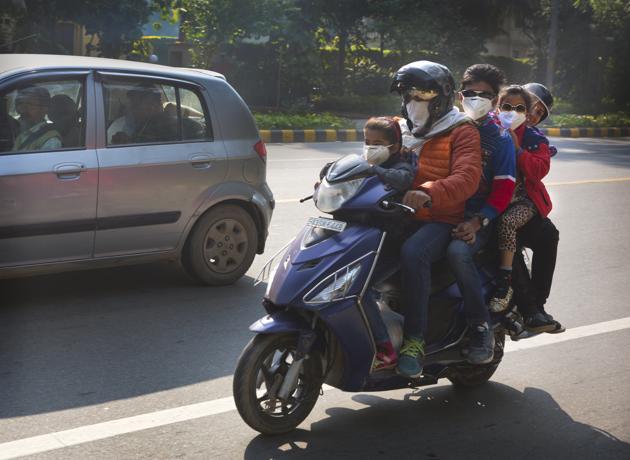New UN report on warming proves climate communication is failing
One reason why the issue is not getting the required traction could be the gap that exists between the world of scientists and the general public.
Last week, a senior forest official Parveen Kaswan tweeted: “If you haven’t noticed #Gaja, on western coast of #India, is the 13th tropical #cyclone or heat engine developed in ocean this year. The highest number in last 26 years. If you still think #climatechange is a hoax and we will survive without paying any attention to it”.

There is strong evidence that climate change may be responsible for the recently observed increase in the intensity, as measured by wind speeds and central pressure, of tropical cyclones, such as Gaja.
Despite such repeated warnings, considerable scientific research output and impacts ---- the amount of carbon dioxide in the atmosphere hit a new record last year with emissions showing no sign of slowing down, the UN World Meteorological Organization said on Thursday -- and anecdotal evidence, it would not be wrong to say that the general public is not paying required attention to climate change.
Prof Corinne Le Quéré, of the University of East Anglia, told The Guardian that she was not surprised by the new record levels of greenhouse gases. “It seems the urgency and extent of the actions needed to address climate change have not sunk in,” she said.
The result of this casual attitude on the problem: we continue to pollute, ravage and deplete the earth, and mess with its natural systems.
CLIMATE COMMUNICATION
One reason why the issue is not getting the required traction could be the gap that exists between the world of scientists and the general public.
Second, one of the best group of public communicators ---- politicians --- are still not making this a part of their electoral agenda though the impact of debilitating climate can be seen everywhere.
Unfortunately, the climate issue has become a seasonal issue: if winter is about pollution, summers are for drought.
Third, the lack of interest on the part of the public is also galling.
Is it possible to make them environment-friendly, especially the urban set?
One way would be to start teaching the nuances of environment early in life.
It is true that schools in India do have something called environmental studies but most children forget what they learnt by the time they clear school.
“It is true climate change messaging is not reaching students,” says Navin Menon, Editor (Publications) at Children’s Book Trust. “Our textbooks need to rewritten, and we must dovetail the issue of environment into other subjects.”
She has a point. For example, why can’t children be taught about water conservation when they read history? After all, all Indian forts had elaborate water harvesting methods.
“There are progressive/experiential schools that do take that step but such schools are exceptions,” says Menon.
At the same time, schools also need to ensure that they re-educate the parents. “You can’t teach water conservation and waste management when at home a child sees her parents wasting water, or using plastic plates and glasses for birthday parties. What schools and parents need to teach children is this: Less is more”.
@kumkumdasgupta






